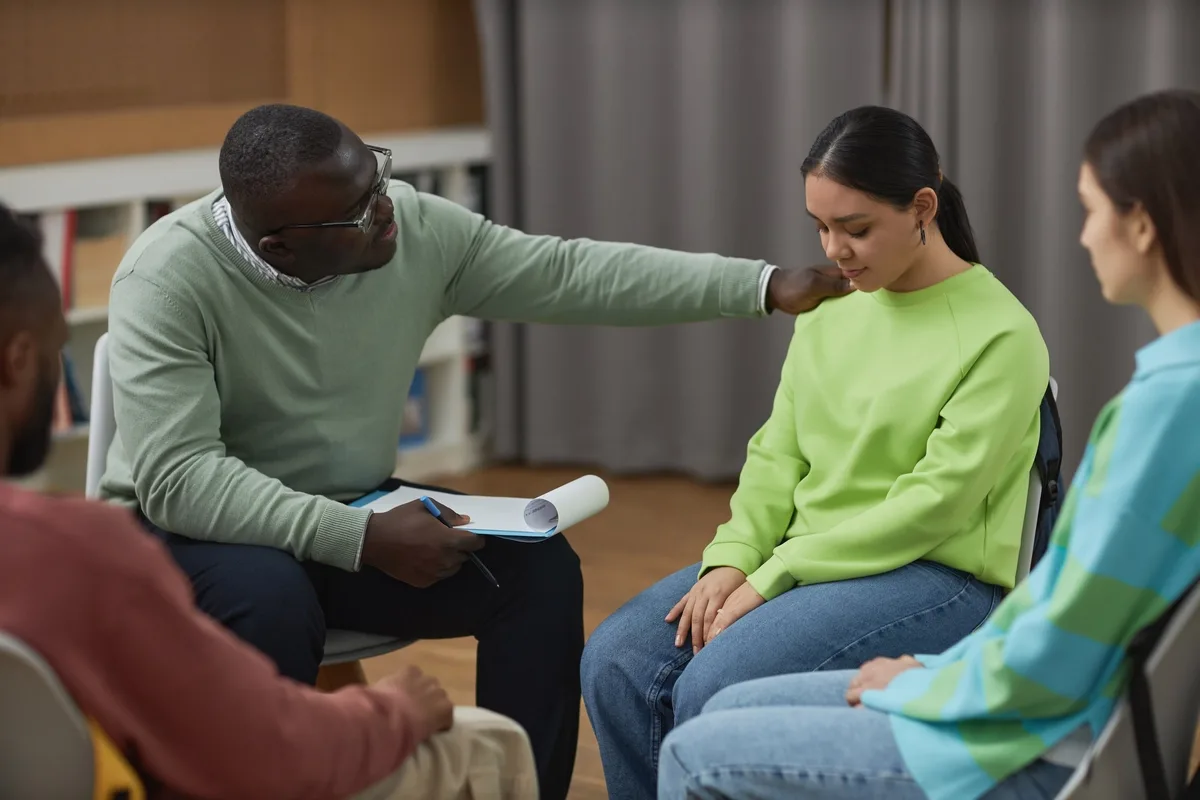24/7 Helpline:
(866) 899-221924/7 Helpline:
(866) 899-2219
Learn more about PTSD Rehab centers in Sedgwick County
PTSD Rehab in Other Counties

Other Insurance Options

PHCS Network

Self-pay options

Magellan

Medical Mutual of Ohio

Evernorth

Ambetter

Meritain

Holman Group

Health Choice

American Behavioral

Choice Care Network

BlueCross

MHNNet Behavioral Health

UMR

Humana

MVP Healthcare

Premera

Sliding scale payment assistance

State Farm

Amerigroup

Dick Van Dyke Addiction Treatment Center
Dick Van Dyke Addiction Treatment Center offers inpatient treatment for individuals with alcohol and...
















Centennial Mental Health Center
Centennial Mental Health Center is a private rehab located in Julesburg, Colorado. Centennial Mental...











